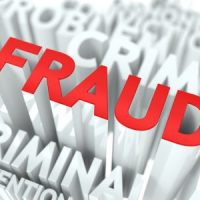COVID Fraud Prosecutions on the Rise in Florida

During the early stages of the COVID-19 pandemic, Congress authorized a number of emergency relief programs to help struggling businesses stay afloat. But now, nearly four years later, the government’s focus has shifted to prosecuting individuals suspected of misusing those relief funds. Indeed, we have seen a marked increase in prosecutions of white collar crimes here in Florida arising from so-called COVID fraud.
Woman Receives 4 Years in Federal Prison for Falsifying EIDL, PPP Applications
Just recently, the U.S. 11th Circuit Court of Appeals upheld a Florida woman’s four-year prison sentence arising from her pleading guilty to numerous charges in connection with obtaining Economic Injury Disaster Loans (EIDL). These were direct loans from the U.S. Small Business Administration (SBA) offered from 2020 to 2022. Eligible businesses could take out these low-interest, fixed-rate, and long-term loans to provide working capital to meet their operating expenses.
The defendant in this case, United States v. Bruey, applied for 15 loans under the EIDL program. The SBA approved 6 of the applications, representing about $763,000 in total funds. According to federal prosecutors, the defendant signed her name to 11 of the 16 applications, and 4 of those 11 applications contained false statements. More to the point, the government said the defendant “created false documents to give the impression that the business and application were legitimate.” For example, she allegedly created fake websites for some of the businesses and provided fake tax returns to the SBA in support of her EIDL applications.
Separately, prosecutors said the defendant also applied for 12 loans under the Paycheck Protection Program (PPP), another COVID relief program that offered low-interest private loans to businesses that needed help making payroll. The government alleged that 6 of those 12 loans were approved for a total of around $118,000. And as with the EIDL applications, prosecutors said the defendant “created false documents to give the impression that her business and application were legitimate.”
The defendant pleaded guilty to a number of federal charges, including 10 counts of wire fraud and a single count of conspiracy to commit money laundering. As noted, the court sentenced the defendant to 48 months (4 years) in prison followed by 3 years of probation. She appealed the sentence, arguing the trial judge improperly applied a particular sentencing enhancement she maintained did not apply to her case.
Federal sentencing involves a complex formula where the court starts with a “base level” for the offense and then decides whether to add levels if certain conditions apply. Here, the trial court applied a “sophisticated means” enhancement, which is often used in money laundering cases. The 11th Circuit upheld the use of the enhancement here, essentially noting the defendant admitted to creating multiple fake business entities in support of her scheme to obtain EIDL and PPP funds. So her 48-month sentence stood.
Contact the Joshi Law Firm Today
If you are facing fraud or similar white collar charges, you need to take the matter as seriously as any violent crime prosecution. Your first step should be to call a qualified Orlando white collar crime attorney. Contact the Joshi Law Firm, PA, today to schedule a free consultation.
Source:
scholar.google.com/scholar_case?case=12304524649961169378

